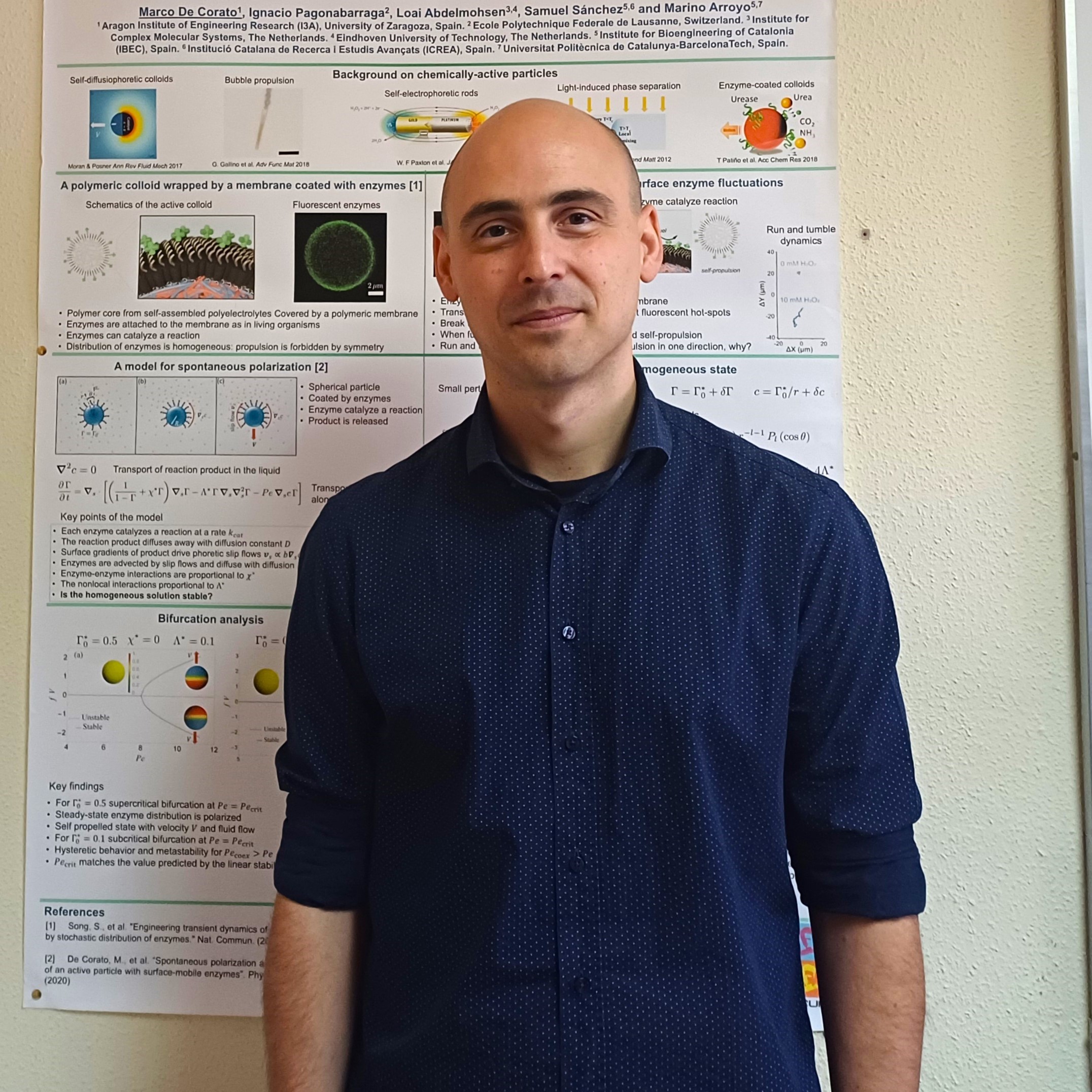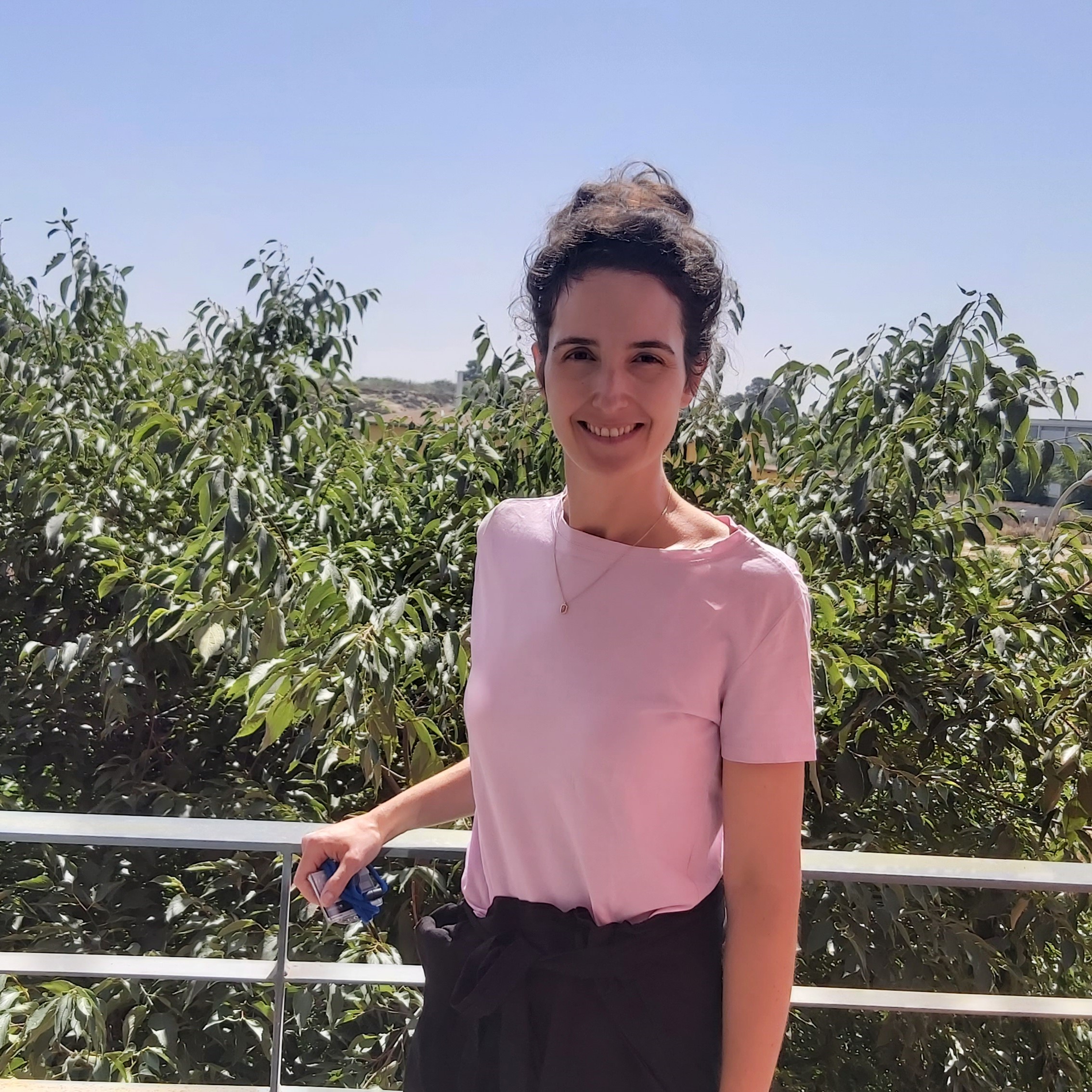
Why did you decide to go into research ?
It's not something I've always been clear about. I did a master's degree in Italy and from there my interest in research began, probably because of the way the professors explained things or because of the courses I followed. Little by little, I wanted to go beyond the explanations of the professors, to go deeper. This led me to do a Master's thesis with a bit more research, I liked it a lot and I decided to continue with the PhD, which I loved, above all, thanks to the interactions with my supervisors, two fantastic and scientifically rigorous people. It's like a passion that has been developing.
How long have you been associated with the I3A and what would you highlight about the Institute?
I arrived during the pandemic, in September 2020, and the first year I was part of the centre, but I had never been to the I3A because we worked mostly from home. But I was very surprised by the skill with which the I3A manages European projects, the speed with which it solves problems with the cluster, for example. What I can also say is that it is full of people I love working with. All the personal interactions I have had and with the I3A management have been very positive.
In your research group, what are your main lines or areas of work?
What I do in the Fluid Dynamics Technologies Group is to understand how microscopic, mechanical or chemical phenomena affect microscopic properties, for example, of polymer mixtures for industrial processes or chemical reactors. I am also working on mechanics and chemistry in the cell nucleus. The common thread in all this research is to understand how you can model what happens at very small scales and how that influences the larger scale
Is there a project of which you are most proud because of its impact on society or academia?
As I am young, I have only led a few projects. However, I wanted to highlight the project funded by the DGA in 2021 to investigate the mechanics of the cell nucleus and how it is coupled to gene expression in the cell. It is a project that has allowed me to collaborate with other groups at I3A, in particular M2BE, meet many fantastic people and apply my ideas in a completely new research environment for me.
How do you envision the future of your research area, and are there any trends or challenges that you find particularly interesting or important?
For me, everything is a challenge. Each thing, each problem that is discovered, is a challenge, something that surprises at the same time as the research is being done. There are many things that we didn't expect and that we couldn't foresee, it's something that excites me, that amuses me. If we always knew everything that was going to happen in a project, research would be a bit boring. So I have a lot of ideas about the lines of research I want to pursue, with ideas that come from the development of current projects.
What do you enjoy most about your profession and what do you enjoy least?
Without a doubt, what I enjoy most is the surprises you find during research. For example, you are analysing some experimental result and something comes up that is totally unexpected that no one had observed before and that surprises you. That gives me excitement and encourages me to continue researching. And, above all, when your students, the people who work with you, discover it, it's satisfying.
As for what I dislike the least, there are some bureaucratic aspects, but that is part of research and of all countries. Also, the time it sometimes takes to get everything done and it is a difficult job to switch off because you think a lot about the results that have come out. Equally, I can add the ideas that we have to give up because we can't respond to everything. Also, it is frustrating not to find people who want to do research along these lines.
What would you say to anyone thinking of going into research?
That he does not lose that ability to continue to be excited almost like a child who has discovered something new in the course of his career. This ability to be surprised by unexpected results is the fuse that has to be in our work.
CLOSE UP…
What did you study: Chemical Engineering
A dream to fulfil: to learn how to cook all the typical sweets of my region
What do you do in your free time, what are your hobbies: I have a passion for history. Lately, it's the hobby I've been devoting most of my time
A book: El Aleph by Jorge Luis Borges or Q by Luther Blissett
A series: True Detective
Favourite band or singer: Tool or Muse
A trip: I've done, Greece and I'd like to do, India
How would you define yourself: as a dreamer
